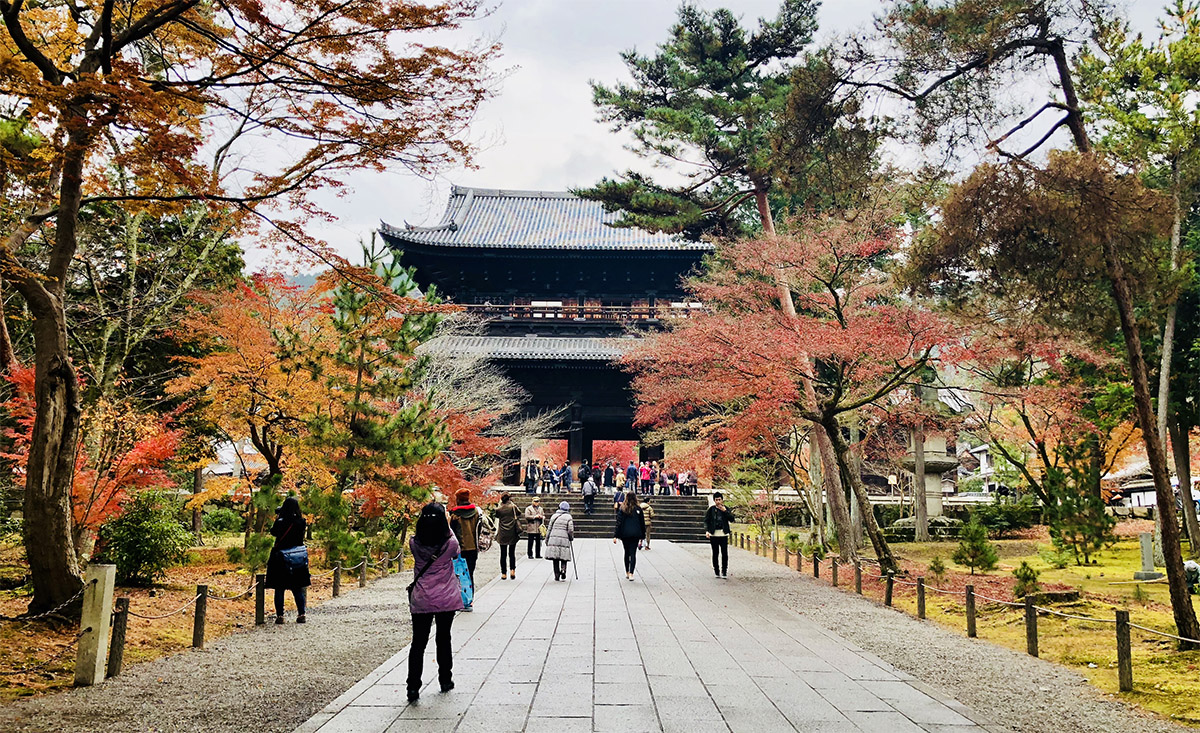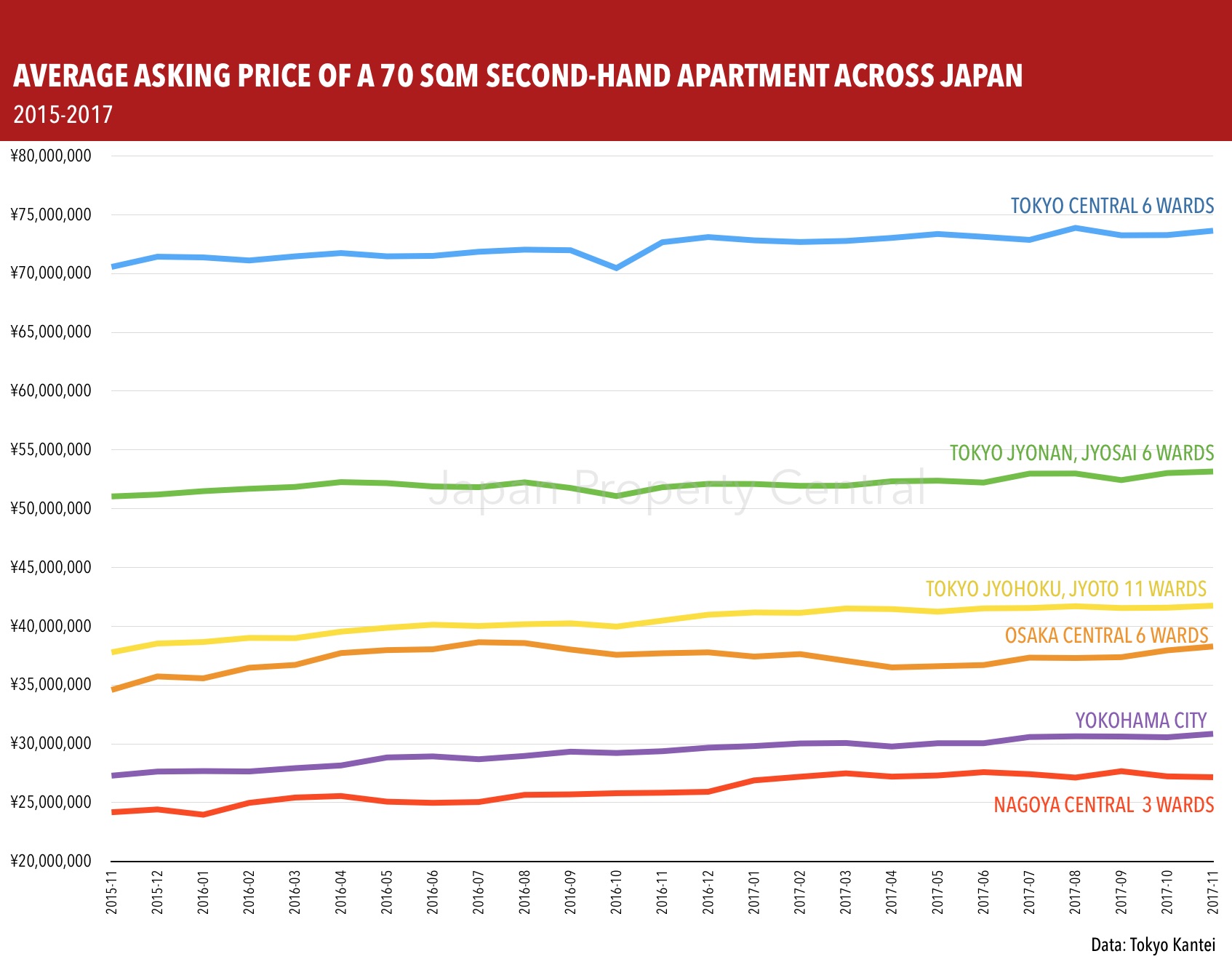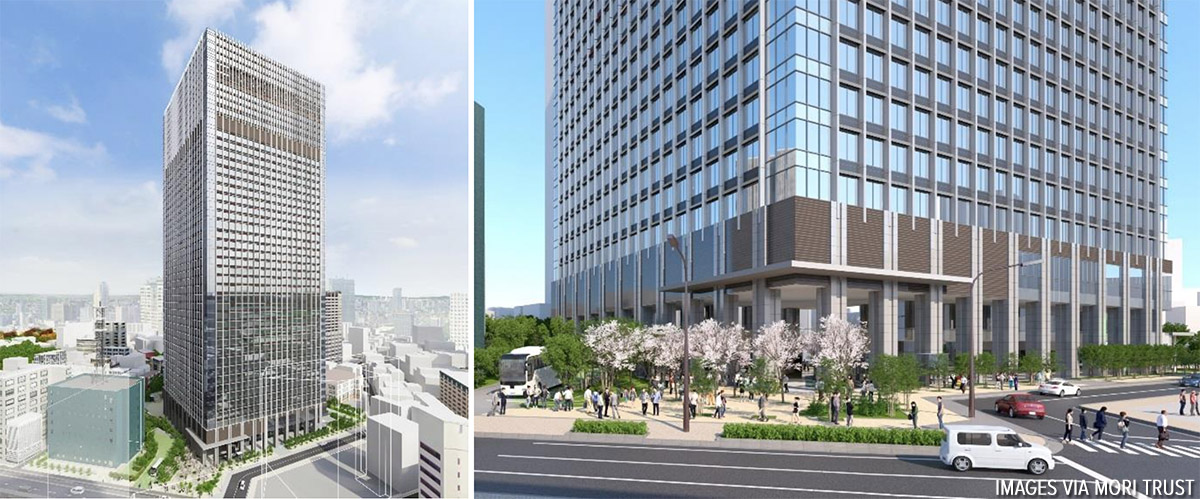Kyoto property prices pushing younger buyers out of town
Recent population data provided by Kyoto City is showing a growing trend of younger residents moving out of the city to surrounding districts. If this trend continues, the city could see a net outflow of residents in the 30-year old age bracket.
The average price of an apartment in the city in 2016 was about 20 ~ 50% higher than the top 10 cities that these younger residents are moving to, leading some to say that Kyoto has become unaffordable for the younger generation. With surging hotel development creating a shortage of residential development sites, the average apartment price in central Kyoto has reached around 1,000,000 Yen/sqm (approx. 835 USD / sq ft), close to double the price in other districts. In 2016, Kyoto City was the second most expensive district in Japan, second to Tokyo, for new apartments with an average price of 52,960,000 Yen.Read more
Our Japan Property Market Report for 2017
Our annual property market report for the past year can be downloaded in PDF format below.
We continued to see property prices rise in 2017, while transactions hit new highs. The luxury residential market in Tokyo has been a star performer and developers are starting to increase their offerings of high-end apartments to cater to demand.
Supporting the real estate market this year were record high foreign tourist numbers, record low office vacancy rates, a surging share market, improving economic conditions and low unemployment figures.
We have compiled our market insights into the following report:Read more
Supply of new apartments in greater Tokyo to increase in 2018
According to a forecast by the Real Estate Economic Institute, a total of 38,000 brand new apartments are expected to be released for sale across greater Tokyo in 2018, up 4.4% from 2017 and the second year in a row to see an increase. Depending on demand for buyers eager to purchase before the consumption tax rate increase in October 2019, supply could reach as high as 40,000 units.Read more
Tokyo Apartment Sales in December 2017

The following is a selection of apartments that were reported to have sold in central Tokyo during the month of December 2017:Read more
Kyoto to see 12,000 new hotel rooms by 2020

A survey by the Kyoto Shimbun has estimated that there will be approximately 12,000 new hotel rooms supplied in the city by 2020, a 40% increase from 2015. This is 20% more than the 10,000 rooms required to eliminate the current room shortage.
The city had a total of 33,887 rooms as at the end of 2016, a 4,000 room increase from 2015. By 2020 there will be a total of 42,000 rooms. The data measured by the city does not include small-scale accommodation facilities like guest houses, which means the total could be much higher.Read more
Apartment asking prices in Tokyo in November 2017

According to Tokyo Kantei the average asking price of a 70 sqm (753 sq ft) apartment across greater Tokyo was 36,210,000 Yen in November, up 1.1% from the previous month and up 2.1% from last year. The average building age was 23.1 years.
In Tokyo’s 23 wards the average asking price was 53,320,000 Yen, up 0.8% from the previous month and up 1.0% from last year. The average building age was 22.7 years.Read more
Akasaka Twin Tower Redevelopment to be completed by 2024

Mori Trust released additional details on their Akasaka 2 Chome Project earlier this month. The mixed-use office and hotel building will be approximately 210 meters tall with 43 floors and a total floor area of 220,000 sqm (2.3 million sq ft). This is twice the height of the neighboring House of Representatives Members Housing and almost 40 meters taller than Akasaka Tower Residence. It will be similar in height to the recently completed 205m tall Akasaka Intercity Air which is located across the street.Read more
